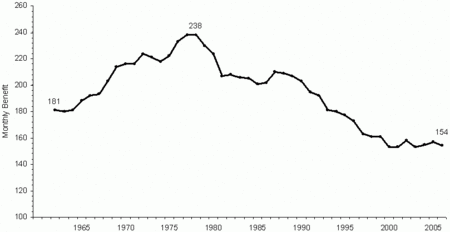Demeter
Demeter's JournalHoley moley! Architecture's trend for cutting holes in buildings
http://www.theguardian.com/artanddesign/architecture-design-blog/2014/jan/17/architecture-holes-buildings-china-zaha-hadid-dubai




MORE PHOTOS, AND DESCRIPTIVE TEXT, AT LINK
NSA SUBTHREAD
You Can't Opt Out: 10 NSA Myths Debunkedhttp://truth-out.org/news/item/21191-you-cant-opt-out-10-nsa-myths-debunked
The debate Edward Snowden envisioned when he revealed the extent of National Security Agency (NSA) spying on Americans has taken a bad turn. Instead of a careful examination of what the NSA does, the legality of its actions, what risks it takes for what gains, and how effective the agency has been in its stated mission of protecting Americans, we increasingly have government officials or retired versions of the same demanding -- quite literally -- Snowden’s head and engaging in the usual fear-mongering over 9/11. They have been aided by a chorus of pundits, columnists, and present as well as former officials offering bumper-sticker slogans like "If you have nothing to hide, you have nothing to fear," all the while claiming our freedom is in direct conflict with our security.
It’s time to face these arguments directly. So here are ten myths about NSA surveillance that need debunking.Let's sort them out.
1) NSA surveillance is legal.
True, if perhaps you put “legal” in quotes. After all, so was slavery once upon a time in the U.S. and apartheid in South Africa. Laws represent what a government and sometimes perhaps even a majority of the people want at a given point in time. They change and are changeable; what once was a potential felony in Colorado is now a tourist draw.
Laws, manipulated for terrible ends, must be challenged when they come into conflict with the fundamental principles and morals of a free society. Laws created Nelson Mandela, the terrorist (whom the U.S. kept on its terror watch list until 2008), and laws created Nelson Mandela, the president.
There’s a catch in the issue of legality and the NSA. Few of us can know just what the law is. What happens to you if you shoplift from a store or murder someone in a bar fight? The consequences of such actions are clearly codified and you can look them up. Is it legal to park over there? The rules are on a sign posted right where you'd like to pull in. If a cop tickets you wrongly, you can go to court and use that sign to defend yourself. Yet almost all of the applicable “law,” when it comes to the National Security Agency and its surveillance practices, was secret until Edward Snowden began releasing his documents. Secret interpretations of the shady Patriot Act made in a secret court applied. The fact that an unknown number of legal memos and interpretations of that secret law (themselves still classified) are operative means that we really don’t know what is legal anymore...
MUST READ AND BOOKMARK FOR YOUR FASCIST FRIENDS...
Ill-Defined Coverage Muddles Insurance For Developmentally Disabled
Source: NPR
A little remarked upon requirement in the federal health law expands treatments for people with cerebral palsy, autism and other developmental disabilities. But some advocates and policy experts are concerned that insurers may find ways to sidestep the mandate....Health plans of all kinds typically cover rehabilitative services, such as physical, occupational and speech therapy to help people who had an accident or illness, such as a stroke, recover their ability to walk, talk and function in their daily lives. But before the health law passed, coverage of similar services for habilitative purposes — that is, to help people learn or maintain functional skills, rather than regain them — was often excluded.
Insurers would "say they're not medically necessary," says , a professor of health law and policy at George Washington University who authored about the law's habilitative coverage requirements. "They'd say patients are not recovering function, but rather developing function, and that was an education issue," she says.
MORE
Read more: http://www.npr.org/blogs/health/2014/01/14/262385922/ill-defined-coverage-muddles-insurance-for-developmentally-disabled?ft=1&f=1001
Very interesting...hope this has legs
because the tendency will be to suppress, of course.
Clearly, this is fraud number two on the part of someone – loan fraud.
Fraud number three occurred when JPMorgan Chase and its predecessor banks extended tens of millions of dollars in loans to Norman F. Levy and his family so they could invest with the insolvent Madoff. (Levy died in 2005 at age 93 without being charged with any crimes. Levy’s accountant, Paul J. Konigsberg, was indicted in September of last year and charged by the Securities and Exchange Commission in a civil action. Konigsberg has pleaded not guilty in both cases.)
According to Picard, Levy had $188 million in outstanding loans in 1996, which he used to funnel money into Madoff investments. Picard’s lawyers told the court that JPMorgan Chase (JPMC) “referred to these investments as ‘special deals.’ Indeed, these deals were special for all involved: (a) Levy enjoyed Madoff’s inflated return rates of up to 40% on the money he invested with Madoff; (b) Madoff enjoyed the benefits of large amounts of cash to perpetuate his fraud without being subject to JPMC’s due diligence processes; and (c) JPMC earned fees on the loan amounts and watched the ‘special deals’ from afar, escaping responsibility for any due diligence on Madoff’s operation.”
A critical piece of evidence against JPMorgan was that despite funneling loans to both Madoff and Levy, the bank “advised the rest of its Private Bank customers not to invest with Madoff,” according to Picard.
On paper, according to Picard, Levy was worth $1.5 billion in 1998. He was such an important customer to JPMorgan and its predecessor firms that he was given his own office at the bank – a situation that perhaps fueled the Los Angeles Times’ question of just who was a part of whose gang.
NO WONDER THEY HUNG BERNIE HIGH, AND ALL HIS FAMILY, TOO!
Weekend Economists at War! January 10-12, 2014
As NPR has repeatedly reminded us this week, 50 years ago Lyndon Baines Johnson declared a War on Poverty, claiming that the richest nation in the world ought to be able to win that one.

And, for a while, it was working:
The popularity of a war on poverty waned after the 1960s. Deregulation, growing criticism of the welfare state, and an ideological shift to reducing federal aid to impoverished people in the 1980s and 1990s culminated in the Personal Responsibility and Work Opportunity Act of 1996, which, as claimed President Bill Clinton, to "end welfare as we know it." Prof. Tony Judt, the late historian, said in reference to the earlier proposed title of the Personal Responsibility and Work Opportunity Act that "a more Orwellian title would be hard to conceive" and attributed the decline in the popularity of the Great Society as a policy to its success, as fewer people feared hunger, sickness, and ignorance. Additionally, fewer people were concerned with ensuring a minimum standard for all citizens and social liberalism.
Nonetheless, the legacy of the War on Poverty policy initiative remains in the continued existence of such federal programs as Head Start, Volunteers in Service to America, TRIO, and Job Corps.
Major initiatives
The Office of Economic Opportunity was the agency responsible for administering most of the War on Poverty programs created during Johnson's Administration, including VISTA, Job Corps, Head Start, Legal Services and the Community Action Program. The OEO was established in 1964 and quickly became a target of both left-wing and right-wing critics of the War on Poverty. Directors of the OEO included Sargent Shriver, Bertrand Harding, and Donald Rumsfeld.(! St. Ronnie, no doubt--Demeter)
The OEO launched Project Head Start as an eight-week summer program in 1965. The project was designed to help end poverty by providing preschool children from low-income families with a program that would meet emotional, social, health, nutritional, and psychological needs. Head Start was then transferred to the Office of Child Development in the Department of Health, Education, and Welfare (later the Department of Health and Human Services) by the Nixon Administration in 1969.
President Johnson also announced a second project to follow children from the Head Start program. This was implemented in 1967 with Project Follow Through, the largest educational experiment ever conducted. The policy trains disadvantaged and at-risk youth and has provided more than 2 million disadvantaged young people with the integrated academic, vocational, and social skills training they need to gain independence and get quality, long-term jobs or further their education. Job Corps continues to help 70,000 youths annually at 122 Job Corps centers throughout the country. Besides vocational training, many Job Corps also offer GED programs as well as high school diplomas and programs to get students into college.
Criticisms
President Johnson's "War on Poverty" speech was delivered at a time of recovery (the poverty level had fallen from 22.4% in 1959 to 19% in 1964 when the War on Poverty was announced) and it was viewed by critics as an effort to get the United States Congress to authorize social welfare programs.
Some economists, including Milton Friedman, have argued that Johnson's policies actually had a negative impact on the economy because of their interventionist nature, noting in a PBS interview that "the government sets out to eliminate poverty, it has a war on poverty, so-called "poverty" increases. It has a welfare program, and the welfare program leads to an expansion of problems. A general attitude develops that government isn't a very efficient way of doing things." Adherents of this school of thought recommend that the best way to fight poverty is not through government spending but through economic growth. (BOO! HISS!)
Conservative Research Fellow at the Independent Institute James followed this line of thinking when he wrote that "the war on poverty was a costly, tragic mistake [because]...abolishing poverty did not seem far-fetched to the activists...[and] it was a perspective that led to intolerance...The simple economic theory of poverty led to a single underlying principle for welfare programs...In adopting the handout approach for their programs, the war-on-poverty activists failed to notice—or failed to care—that they were ignoring over a century of theory and experience in the social welfare field...The war-on-poverty activists not only ignored the lessons of the past on the subject of handouts; they also ignored their own experience with the poor." (DOES HE REFER TO THE GLOBAL RESEARCH THAT SHOWS THAT THE SUREST WAY TO GET SOMEONE OUT OF POVERTY IS TO GIVE HIM/HER SOME CASH? DEMETER)
Others took a different tack. In 1967, in his book Where Do We Go from Here: Chaos or Community? Martin Luther King "criticized Johnson's War on Poverty for being too piecemeal," saying that programs created under the "war on poverty" such as "housing programs, job training and family counseling" all had "a fatal disadvantage [because] the programs have never proceeded on a coordinated basis...[and noted that] at no time has a total, coordinated and fully adequate program been conceived." In his speech on April 4, 1967 at Riverside Church in New City, King connected the war in Vietnam with the "war on poverty":
Perhaps the more tragic recognition of reality took place when it became clear to me that the war was doing far more than devastating the hopes of the poor at home."
This criticism was repeated in his speech at the same place later that month when he said that "and you may not know it, my friends, but it is estimated that we spend $500,000 to kill each enemy soldier, while we spend only fifty-three dollars for each person classified as poor, and much of that fifty-three dollars goes for salaries to people that are not poor. So I was increasingly compelled to see the war as an enemy of the poor, and attack it as such."[16] The next year, King started the Poor People's Campaign to address the shortcomings of the "war on poverty" and to "demand a check" for suffering African-Americans which was carried on briefly after his death with the construction and maintenance of an encampment, Resurrection City, for over six weeks. Years later, a writer in The Nation remarked that "the war on poverty has too often been a war on the poor themselves," but that much can be done.
In 1989, the former executive officer of the Task Force on Poverty Hyman Bookbinder addressed such criticisms of the "war on poverty" in an op-ed in The New York Times. He wrote that:
No, it has achieved many good results. Society has failed. It tired of the war too soon, gave it inadequate resources and did not open up new fronts as required.
Large-scale homelessness, an explosion of teen-age pregnancies and single-parent households, rampant illiteracy, drugs and crime - these have been both the results of and causes of persistent poverty. While it is thus inappropriate to celebrate an anniversary of the war on poverty, it is important to point up some of the big gains...Did every program of the 60's work? Was every dollar used to its maximum potential? Should every Great Society program be reinstated or increased? Of course not...First, we cannot afford not to resume the war. One way or another, the problem will remain expensive. Somehow, we will provide for the survival needs of the poorest: welfare, food stamps, beds and roofs for the homeless, Medicaid. The fewer poor there are, the fewer the relief problems. Getting people out of poverty is the most cost-effective public investment."

Decline in welfare benefits highlights decreased support in government for War on Poverty initiatives 1962–2006 (in 2006 dollars).
Results and aftermath
In the decade following the 1964 introduction of the war on poverty, poverty rates in the U.S. dropped to their lowest level since comprehensive records began in 1958: from 17.3% in the year the Economic Opportunity Act was implemented to 11.1% in 1973. They have remained between 11 and 15.2% ever since.
The ‘absolute poverty line’ is the threshold below which families or individuals are considered to be lacking the resources to meet the basic needs for healthy living; having insufficient income to provide the food, shelter and clothing needed to preserve health.
Poverty among Americans between ages 18–64 has fallen only marginally since 1966, from 10.5% then to 10.1% today. Poverty has significantly fallen among Americans under 18 years old from 23% in 1964 down to less than 17%, although it has risen again to 20% in 2009. The most dramatic decrease in poverty was among Americans over 65, which fell from 28.5% in 1966 to 10.1% today. In 2004, more than 35.9 million, or 12% of Americans including 12.1 million children, were considered to be living in poverty with an average growth of almost 1 million per year. According to the CATO institute, since the Johnson Administration almost $15 trillion has been spent on welfare, with poverty rates being about the same as during the Johnson Administration.
The OEO was dismantled by President Nixon in 1973, though many of the agency's programs were transferred to other government agencies.

 %3Fw%3D628
%3Fw%3D628
You're only a criminal when you reveal State Crimes Against the People
Otherwise, you're one of the Gang.
With new year, Medicaid takes on a broader health-care role
http://www.washingtonpost.com/national/health-science/with-new-year-medicaid-takes-on-a-broader-health-care-role/2013/12/31/83723810-6c07-11e3-b405-7e360f7e9fd2_story.html?hpid=z1
...Already the nation’s largest health-care program, Medicaid is being expanded and reshaped by the law to cover a wider array of people. Among them will be many who consider themselves middle class — people such as Sandy Kush, who initially bristled when she learned that she would be joining a program she had always thought of as being only for the poor.
“Maybe it’s like a shame thing. I was raised middle-class. I own my house. It just seems like not me,” said Kush, 49, an unemployed medical transcriptionist in Naperville, Ill., who said she would have preferred to buy a private health plan with the help of a federal subsidy.
AND WITH ANY LUCK, THAT HOME WILL BE FORFEIT TO THE GOVT. UNDER MEDICAID RULES...
...So far, more than 2 million Americans, many previously uninsured, have enrolled in private health plans, thanks in large part to new federal subsidies for low- and middle-income people to buy coverage. Their difficulties in navigating the system since its rocky launch Oct. 1 have dominated the headlines.
A far greater number — about 3.9 million — took steps in October and November to sign up for Medicaid, according to federal figures. That includes people who became eligible for the state-federal program under the expansion as well as those who could have enrolled previously, but for one reason or another did not sign up until now. Although the Medicaid expansion has gotten less attention in recent months, it remains a flash point. The issue has split the nation in half and has become a proxy for the broader debate over the role and responsibilities of government. Twenty-five states and the District expanded Medicaid under the Affordable Care Act. In many of those places, the program will be open for the first time to anyone whose income is below 138 percent of the poverty level — individuals making less than $15,856 a year or a family of four earning under $32,499 in 2013 dollars. That includes childless adults, who were excluded in most states despite a widely held misperception that all poor people automatically qualified for Medicaid.
“The big change is that it really is going to operate the way most people thought it did,” said Judy Solomon, a Medicaid expert at the Center on Budget and Policy Priorities, a think tank focused on policies affecting low- and moderate-income people.
TREMENDOUS AMOUNT OF INFO ON MEDICAID--MUST READ
MEDICAID IS THE BASIS OF A TRUE UNIVERSAL SINGLE PAYER, NOT MEDICARE.
Not even on DU
Especially with the "picky-picky" turning up of noses at "source sites".
As if truth were the province of only select, authorized and approved (by some form of divination, since most reputable sources have been caught in lies and evasions and neglect on multiple occasions...) websites, bloggers, and commercial news sources.
I use the cynic's method of verification. If it sounds too good to be true, it probably is. If it violates one or more laws of physics, it's DEFINITELY bogus. And if somebody's making money off it, it's probably a scam.
Edward Snowden Evolved From Gaming Geek to Conscientious Whistleblower
http://truth-out.org/news/item/20983-edward-snowden-evolved-from-gaming-geek-to-conscientious-whistleblower-how-a-high-tech-spy-came-in-from-the-coldThe year 2003 was the last that 18-year-old Edward Snowden lived a normal life. Snowden, a computer gaming jock and fan of Japanese animation, was about to enter a decade-long journey deep inside the "black ops" secret spy world of the Central Intelligence Agency [CIA], the Defense Intelligence Agency [DIA] and the National Security Agency [NSA]. His trip would end in June 2013, at a chic room at the Mira Hotel in Hong Kong, where he divulged thousands of top-secret NSA documents to filmmaker Laura Poitras and investigative reporters Glenn Greenwald and Ewen MacAskill of The Guardian newspaper.
The publication of the "Snowden Papers" has caused an international sensation for 6 months as each revelation adds to the sense that US intelligence is completely out of control and without any limits. Even US diplomats were shocked by the depth of US spying. Overnight, Snowden became the most famous leaker in the annals of US intelligence. He was nominated for the alternative Nobel Peace Prize, won awards for being a whistleblower; yet to many in the US intelligence community he also became Public Enemy #1.
But back in May 2003, Snowden was a little-known teenage tech geek helping friends at Ryuhana Press, a website where the young Snowden worked at what he described as "Web Editor/Coffee Boy. "His avatar was a geek, with a T-shirt emblazoned "I (heart) Me," spiky hair, granny glasses on the tip of his nose and a green scarf draped around his neck. "I really am a nice guy," was the intro to his online web profile that continued, "you see, I act arrogant and cruel because I was not hugged enough as a child, and the public education system turned it's [sic] wretched, spiked back on me."
THE LEGEND BEGINS....FASCINATING READING
Snowden's initial plan, according to an interview he gave The Guardian, was to release secret files in late 2007. However, Barack Obama's election offered Snowden pause, a moment of hope. Would Obama revert the massive surveillance systems and balance citizen freedoms and privacies? Snowden thought the answer was a possible yes, so he postponed his plans to blow the roof off NSA secret ops.
YES, THE IRONY OF OBAMA...THE EMPTIEST OF SUITS...IMITATING ART, IE:
"LUKE, I AM YOUR FATHER"
Yet, Snowden's story is far from over. He will be called a hero. A traitor. A spy for Russia. A Chinese collaborator. A kamikaze information trafficker and far worse. Some will call for him to be awarded the Noble Peace Prize. Others will suggest a one-way trip to the firing squad. But analyzing what is known about the last decade of Snowden's life, the evidence points to the growing frustration of a programming wizard who accidentally fell into the world of Top Secret information warfare. Snowden's decision to go public had little to do with money or fame. He was firing a shot in what he hoped would ignite as a worldwide debate regarding what he described as the "Architecture of Oppression."
Copyright of Jonathan Franklin. Not to be reprinted without the permission of the author. Follow him at @FranklinBlog on Twitter.
Profile Information
Gender: FemaleHometown: Ann Arbor, Michigan
Home country: USA
Member since: Thu Sep 25, 2003, 02:04 PM
Number of posts: 85,373
